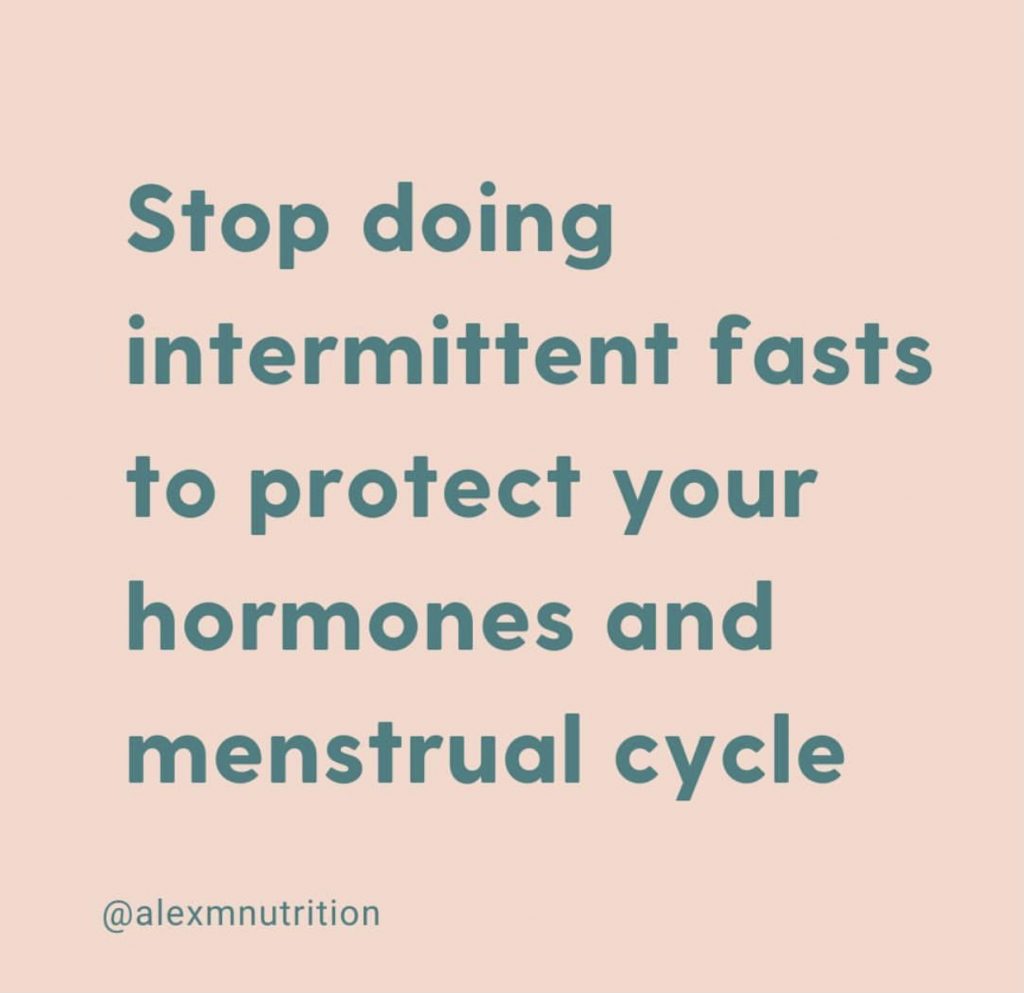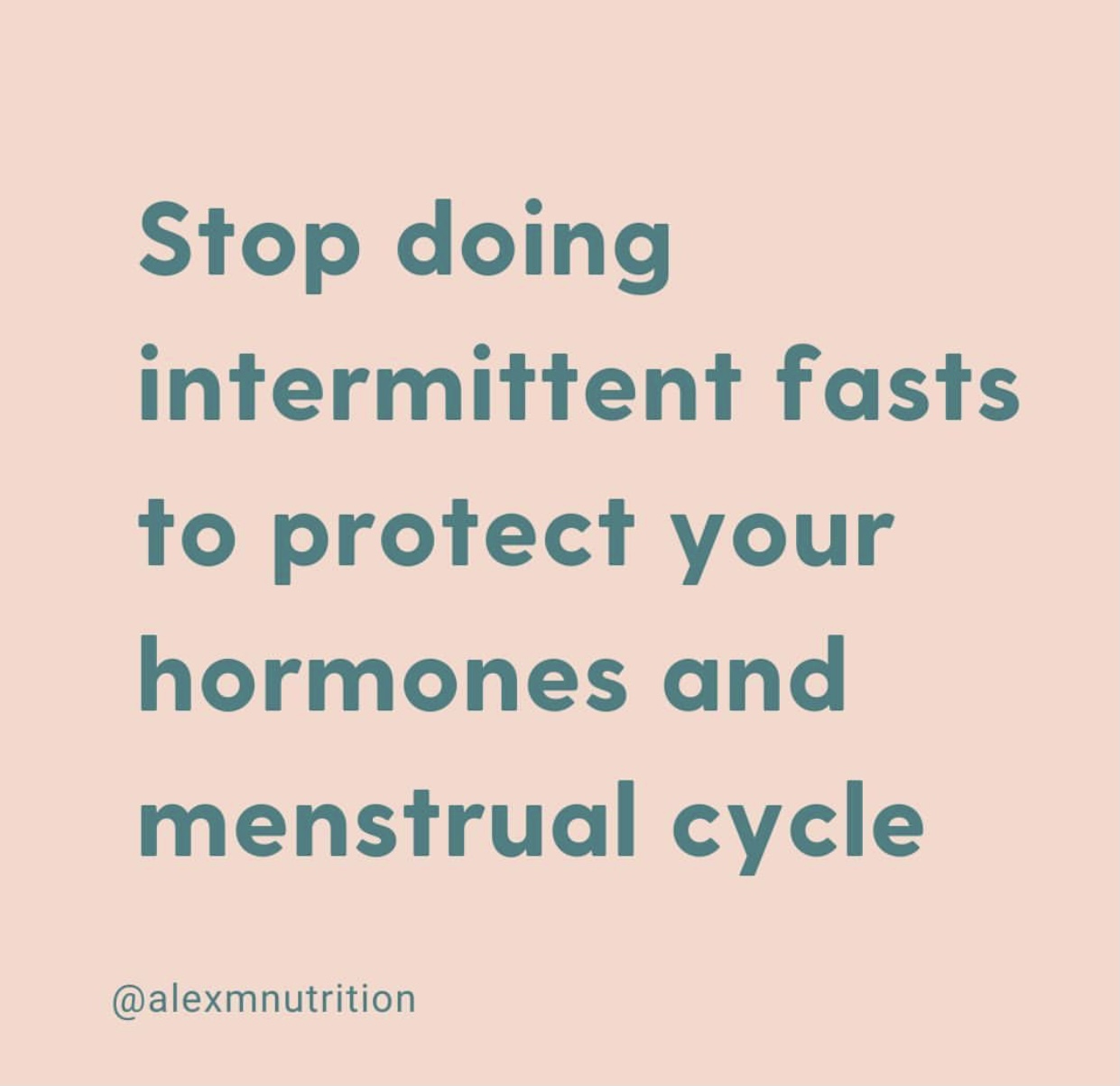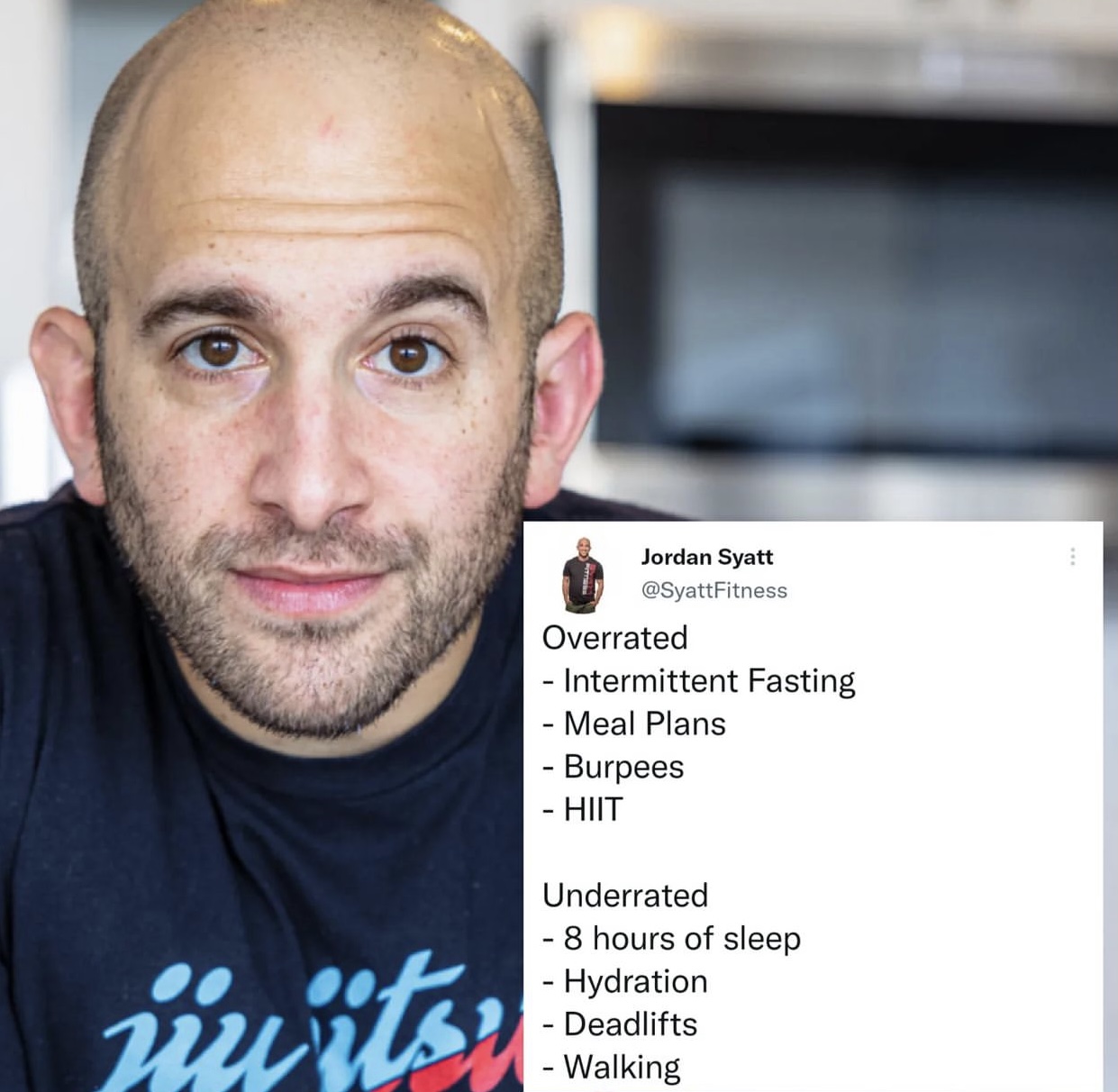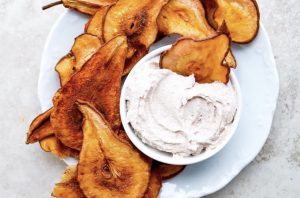
* You will most likely notice your stomach is grumbling during fasting periods, primarily if you are used to constant grazing throughout the day.
* Fasting may also lead to an increase in the stress hormone, cortisol, which may lead to even more food cravings.
* Overeating and binge eating are two common side effects of intermittent fasting.
* Intermittent fasting is sometimes associated with dehydration because when you do not eat, sometimes you forget to drink. For good health, it is essential to actively stay hydrated throughout the day by drinking, on average, three liters of water.
* You will most likely feel tired because your body is running on less energy than usual, and since fasting can boost stress levels, it can also disrupt your sleep patterns. It is crucial to adopt a healthy, regular sleep pattern and stick to it so you can feel rested on an everyday basis.
* The same biochemistry that regulates mood also regulates appetite with nutrient consumption affecting the activity of neurotransmitters like dopamine and serotonin. Fasting could play a role in anxiety and depression.
* Deregulating your appetite may do the same to your mood and therefore you will most likely feel irritable on occasions when you are fasting.
If you are a woman that wants to protect her hormones, it is best to avoid doing intermittent fasts (IF).
By intermittent fasting, I am referring to popular intermittent fasts such as:
1. The 16/8 method, where you skip breakfast and restrict your eating to 8 hours a day
2. The Eat-Stop-Eat method, where you fast for 24 hours a few times a week, and..
3. The 5:2 diet, where you only consume 500-600 calories on 2 non-consecutive days of the week.
Frustratingly, there are no controlled human studies that draw clear conclusions about how intermittent fasting affects women (and women biologically are not ‘little men’ – as my friend @larabriden is always great at pointing out).
However the little research that is available does suggest that women should be very cautious when it comes to intermittent fasting.
Why? Because for women IF can create:
🩸Changes in their menstrual cycles (potentially suppressing ovulation & lengthening the overall cycle)
🔵 A drop in thyroid hormones, which are needed for healthy metabolism and optimal reproductive health
🍞 A worsened glucose response to carbohydrates
💪🏼🛑 Muscle wasting (as unlike men a woman’s body is way more likely to tap into lean muscle mass as an energy source when fasting, not fat)
🤤 Way higher hunger levels than men when on an IF as well.
In animal studies, female rats lost weight on IFs – but they also experienced hormone depletion and increased stress levels (thanks to their ovaries shrinking and adrenal gland enlarging).
Then there’s the way caffeine on an empty stomach for breakfast stresses out the adrenal glands and potentially depletes your hormones too.
The list goes on and on.
Instead of intermittent fasting, it’s much healthier to just eat 12 hours on/off (which protects you from everything I’ve talked about above).
And it is healthy to give your digestion some sort of break. I recommend just eating from 7am-7pm, without counting your calories (if you want to count anything, count your protein gram intake instead).
Have you tried these kind of IF’s before?
I like HIIT.
Sometimes I use Intermittent fasting. (Many of my Inner Circle Members do).
I include burpees in some of my programs.
And in some cases meal plans are helpful.
But they’re all overrated.
Most people use them entirely too much.
And they’re often seen as a panacea rather than a simple tool to use along your journey.
You can use them if you want.
You can discard them if you want.
Either way, they will not make or break your success.
On the other hand…
Sleep is always critical (apologies in advance to the parents of young children, I know you’ve got it rough right now).
Hydration is always critical. Even *slight* dehydration can massively impact your performance and increase your likelihood of overeating.
Deadlifts are always critical. If you disagree, that’s fine but fuck off. Keep in mind, there are many ways to deadlift that don’t include a barbell or even lifting heavy.
Walking is always critical. If people knew what happens in your body on a cellular level from as little as 20min of walking/day they would shit themselves. Not literally. And they’d make a point to walk more every day.
If you totally insist on intermittent fasting here are the top mistakes to avoid
I’m going to discuss 12 intermittent fasting mistakes to avoid on your journey.
1. Too Much Dairy
Heavy cream, hard cheeses, butter, and cream cheese is delicious and considered a staple in the Keto diet. The problem is not everyone can tolerate dairy, and this can lead to weight stalls.
Half of the people I’ve helped over the years have some intolerance to dairy. This intolerance can lead to inflammation in the body. Inflammation drives up cortisol which hurts weight loss and overall health.
I also think most people don’t even know they have a dairy problem. They are blaming their weight loss plateaus on other things in their diet or life.
I recommend going dairy free for 30 days. Then slowly add back in some dairy to see how you feel and how it affects you on the scale. You might be surprised by what you find.
2. Quitting Too Soon
Intermittent fasting isn’t easy because, duh, you’re either going all day on fewer calories than usual or going longer than usual without any food at all. No matter what flavor of fasting you choose, the eating style requires a lot of discipline—especially when you feel hungry (or hangry, as my wife calls it).
Feelings of exhaustion and irritability you notice initially should go away after the first week or so. If they don’t, it’s possible the method of fasting you’ve chosen doesn’t quite suit your lifestyle and you may need to reconsider your approach.
3. Being Afraid of Fat
We all have been lied to that fat is bad, and it’s going to kill us. Ancel Keys started this dogma decades ago, and the low-fat mantra has prevailed ever since.
Doctors and researchers tell us if we keep eating fat our arteries are going to become clogged and we are going to die of heart attacks. It’s just not true, and it’s based on weak science.
To be successful on the Intermittent Fasting Diet, you have to get over this fear. Our bodies thrive on using healthy fats. Our livers break down fat into ketones which are the basis of the ketogenic diet. It’s a much cleaner burning fuel for our bodies.
Satiety is the biggest benefit of eating enough of these healthy fats. You will find that when you are consuming enough healthy fats, you won’t need to snack between meals.
You may also find that you need to eat fewer meals because you are so satisfied. You can these start to intermittent fast and only eat within a 6-8 hour window which leads to many other health benefits.
Along with this satiety, you will find that when you are consuming enough healthy fats, you won’t be as tempted to cheat. Let’s face it; it’s hard to stay on plan if you are ravenous. But if your body feels like it’s satisfied, you are less likely to reach for that sugary cheat treat.
4. Not Enough Salt
This is along the same lines of the fat-fearing, but you can’t be afraid of salt on intermittent fasting. When you are a glucose burner, your body requires a lot of water to use and store glycogen.
However, ketones are a much cleaner burning fuel, and they don’t require a large amount of water. So your body starts getting rid of this excess water which is one of the reasons why you lose a lot of weight in a short period of time on the Keto diet.
In the process of dumping this water through your kidneys also release sodium, potassium, and magnesium.
This electrolyte loss is the most common cause of what people call “keto flu”. It can also lead to things like heart palpitations, constipation, headaches, fatigue, and lightheadedness.
By upping your sodium intake, you limit this loss of electrolytes through the kidneys. I recommend doing this through good salts like Himalayan pink salts and good quality sea salts. Both of these have extra minerals that aren’t found in regular table salt.
You can also use so-called “lite” salts. These are usually 50% salt and 50% potassium which can also help with the potassium loss
5. Not Eating Enough
Some people don’t want to undo what they’ve just done while fasting for hours or they have the mentality that if they eat too much the next fasting period will be harder.
But consistently eating far below your calorie needs is a mistake, and kicks your body into ‘starvation mode,’ slowing your metabolism and making it that much harder to shed fat. Even if you’re restricting when you eat your food, your body still needs an ample amount of food so your organs can function, and you can think straight and be the fantastic human that you are.
If you’re feeling particularly weak, irritable, or unable to focus, it’s likely you’re not eating enough calories. Here, too, a food-tracking app can be helpful. If you want a little more hands-on advice about how many calories you need to thrive, consider consulting with a nutritionist or dietitian.
6. Not Having a Big Enough “Why”
This is another mistake I see not only on the intermittent fasting diet but other diets as well. Why are you on the intermittent fasting diet?
If your reason is just so you can lose some weight and look good, then it’s probably not going to work or last. When you get to a rough patch, and you will, you are much more likely to quit or give in and go back to your old ways.
I think the more sick, more unhealthy you are the easier this is to do. Let’s face it, if you have type 2 diabetes, you probably have a better “why” than someone that just wants to lose 20 lbs to look good in their summer bikini. But that doesn’t mean you have to be on death’s doorstep to come up with a better “why.”
I recommend digging in and coming up with a better “why.” To do this, ask yourself why every time you come up a reason for losing weight and getting healthy. When you find an answer for that, ask why again.
Keep going down that rabbit hole like that annoying kid that keeps asking you why every time you tell them something. Eventually, you will come up with something more like this.
“I want to lose weight and get healthy because I don’t want to live a short life full with limited physical and mental capabilities. I’ve seen my love ones die and suffer from complications of diabetes.
I don’t want to be a carb addict anymore and give into those addictions that make me feel like crap. I want to be in charge of my health and what food I consume.
I want to live a long and healthy life full of physical activity and mental health. I refuse to be confined to a wheelchair or bed in my later years. I don’t want to give into dementia or Alzheimer’s.
I want to be a part of my grandchildren and great-grandchildren’s lives until the day I day. I want to truly be the best version of myself that I can be.”
This “why” is just an example. Yours will obviously be different and personalized.
Once you have your “why,” I want you to write it down. Physically write it down. There is a better connection in your brain when you physically write something down.
Now put the “why” where you can see it daily. This can be the bathroom mirror, refrigerator, or anywhere that you can look at it and read it each day. Better yet, write it down each day.
This will help you when things get tough, and you want to have a cheat. Is that cheat worth more to you than your “why”? If you have a big enough “why,” you are more like to answer no to the cheat and stay on track.
7. Eating Too Much Protein
This one is a big one for me. You mean I can have bacon and ribeyes? That was was my initial reaction with the intermittent fasting diet.
Oh, those glorious fatty meats. I could have days where all I consume is meat.
And while there isn’t a thing as an essential carbohydrate, it doesn’t mean that you can just consume all the meat and proteins you want.
Instead, proteins should be around 25% of the calories that we consume daily. A better way of thinking about this is to try to hit around 0.6 to 0.8 gram of protein for every pound of lean body mass you have.
For me, this is around 90-120 grams of protein a day. You can figure out yours by finding your lean body mass,
This gram total is just a goal, and you shouldn’t worry too much if you go slightly over or under this total each day. Don’t think of it in the same way where we have a stricter limit on our daily carbohydrate intake.
The problem with eating too much protein is our bodies can convert this excess protein into glucose. This glucose conversion becomes the same problem as consuming too many carbs in our diet.
Another mistake with this protein intake is consuming too much of it in one meal. People that eat one meal a day are going to have more problems with excess protein than someone who breaks this up over a couple of meals during the day.
Daily protein intake is highly individualized, and the only real way you are going to know if you are getting too much protein is to test with blood ketone strips. Check before and after meals with high protein and days with one meal a day.
Does it affect your nutritional ketone levels? If so adjust.
Finally, I just want to add that protein is definitely needed on any diet. There are more problems with not getting enough protein then there is with getting too much protein. Still, I recommend not getting too much protein and stalling your weight loss.
8. Eating The Wrong Foods
When you don’t have many opportunities to eat, what you put in your mouth when you do becomes even more crucial. “It’s not just about calories, but about the quality of your nutrition and focusing on eating nutrient-dense foods.
500 calories of avocado will digest quite differently and have a very different effect on your overall body and metabolism than 500 calories of fried potato chips.
Focus on eating a healthy balance of all the macronutrients (healthy fats, lean protein, and carbs) and fiber (which will help with satiety, gas, and bloating) your body needs to function well.
Load half your plate with veggies, a quarter with lean protein (think fish, chicken, and turkey), and a quarter with healthy starches like brown rice, quinoa, and sweet potato. If you’re going to end up eating slightly fewer calories than usual, you need those calories to be as nutritious and body-serving as possible. Just because you’re eating fewer calories doesn’t mean those calories can come from sub-par sources.
9. Snacking
You know you’re supposed to eat multiple times a day? The more, the better, right? Wrong.
If you are following the intermittent fasting diet and sticking to the plan with plenty of healthy fats, the opposite is true. You are going to be eating fewer meals not more.
When you are a glucose burner, you need these snacks because your body can only store so much of it at a time. This glucose runs out quickly, and you need more of this crap fuel. Your body can’t access the real fuel storage; it’s body fat.
That’s not the case when you are burning ketones and fat. Even leaner individuals store tens of thousands of calories of fuel on their body in the form of fat. When you are fat adapted, you can access these fat reserves.
I find that for a lot of people starting out on the intermittent fasting diet, they want to know what they can have for a daily snack. Yes, you can have snacks when first starting out if it helps you adapt to the intermittent fasting diet, but this needs to be one of the first things you cut out.
The good news is if you listen to your body and hunger signals this will happen naturally as the fat keeps you satisfied from meal to meal.
The other problems with excessive snacking are it can lead to excess calories and carbohydrates. I also see where people will use these snacks for artificial sweet treats which I feel like slow down the getting over the carb addiction process.
10. Habit Eating
Part of taking control of your health and weight loss is taking responsibility. You have the greatest interest in your health. It’s not your doctor’s responsibility; it’s yours. Take responsibility for that, and you will find the power of being in control.Humans are creatures of habit. We like routines, and if we look at our lives, we do a lot of the same things at the same time and location each day.
For me, I found that I naturally ate in front of the television each night. It wasn’t that I was necessarily hungry, but my mind was conditioned to eat something while watching TV habitually.
So how did I fix this? First, I asked myself if I was truly hungry. Most of the time I wasn’t, and I just ignored it, and the craving went away. But if I decided that I was indeed hungry, I got up and ate at the kitchen table.
That way I didn’t associate eating and watching television together. You also see this location/activity eating when driving, the breakroom at work, or events you normally associate with food like the going to the movies.
Another habit is eating at a particular time. Lunch at noon and supper at six. We condition our mind and bodies to expect food around these times regardless if we are hungry or not.
We look up at the clock and see it’s almost noon so we must be hungry right? Not necessarily. We need to truly ask ourselves if we are hungry or do we just think we’re hungry just because of the time on the clock.
You can easily skip a meal or move it back to a later time once you are fat adapted. Remember, those tens of thousands of calories we have stored up and can access above? We will be fine without eating at noon every day.
These are habits and not hunger signals. The good news is new habits can be relearned with a little work and practice.
11. Not Enough Sleep or Handling Stress
Isn’t a diet about what we eat? Yes, it is but other things can affect how easy it is for you to lose weight and sleep is one of those big things.
We live in a busy, stressful society nowadays. We sit in traffic for hours daily. We have work stress and more stress when we get home with the family. Then to make matters worse, we stay up late watching television just to “unwind.”
If you aren’t getting enough sleep, it puts your body under stress. Whenever your body is in stressful situations it tends to hold onto weight.
I find that when I get 7-8 hours of sleep each night, the weight comes off much easier. Likewise, when I’m not dealing with a bunch of stress both in my personal life and work, I lose more weight and feel better.
Also, when we are tired or more stressed, we tend to make poor choices. It’s much easier to grab the crap foods in these situations or feel like we need them for a little energy boost.
So get to bed early. Practice some meditations or remove yourself from stressful situations. There are numerous apps these days that can give you guided meditations, and it takes less than 10 minutes a day.
By getting more sleep and eliminating or dealing better with stress daily, you will find your weight loss and overall health will improve.
12. Not Personalizing Your Fast
The intermittent fasting diet isn’t a one size fits all diet. It has to be individualized. This personalization applies to a lot of diets. Many people don’t like this or don’t want that responsibility.
They want to know exactly how many carbs then can have in a day? How much protein? How much fats? Just give me an exact plan, and I will stick to it.
On the flip side, there are the people that think just because a particular food is on the approved Keto-friendly list then can consume all they want of it. That’s not the case. See the dairy mistake above.
If you want to create the best version of yourself, then you have to be willing to be your science experiment. Can you have 50 carbs a day and stay in ketosis? Maybe, but you also might find out that you have to limit it to less than 10 when first starting out because you are so insulin resistant.
How does dairy affect you? How much protein is enough? Too much? How much sleep do I need each day? Do I have a food allergy to a particular food like eggs?
Only you can answer these question because you are different than everyone else. Use my guidelines for the Keto diet or anyone else’s guidelines as just that, guidelines. They aren’t hard fast rules that you can’t or shouldn’t personalize.
For premium Slay Fitness artisan supplements CLICK HERE
By centre for discovery, upgraded health.net






